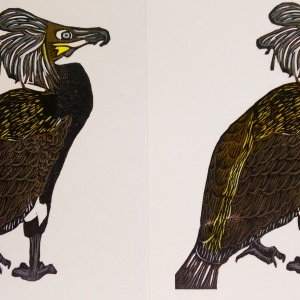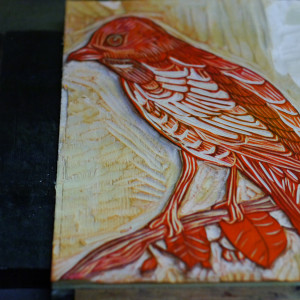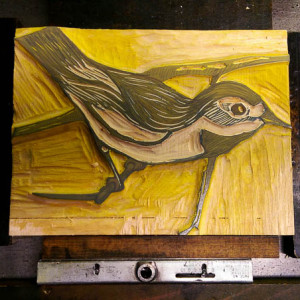As of this month I’m working non-stop; the birds are first, and the text will be set starting in November. Here’s what has been going on: Spectacled Cormorant. Choiseul Crested Pigeon, after two color runs. New Zealand Quail The Dodo.
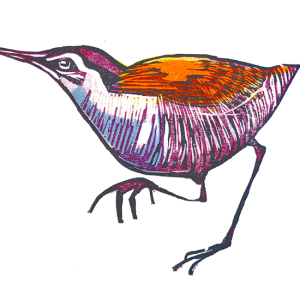
Wake Island Rail
Wake Island is a tiny Pacific atoll just north of the Marshall Islands, technically a territory of the United States. The Wake Island Rail was a tiny flightless bird who lived there, up until the mid-twentieth century. It fed on molluscs, insects, worms and seeds which it found by digging up leaves and soil with its bill. The ornithologist Alexander Wetmore…
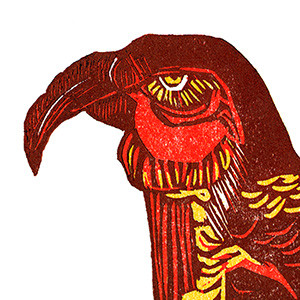
Norfolk Island Kaka
Norfolk Island is a tiny island in the Pacific between Australia, New Zealand, and New Caledonia. The Norfolk Kaka is a large kind of parrot with a big beak who once lived there. Its closest relative is the Kaka of New Zealand. Captain James Cook, on his second voyage through the Pacific in 1774, brought along the naturalist Johann Reinhold…
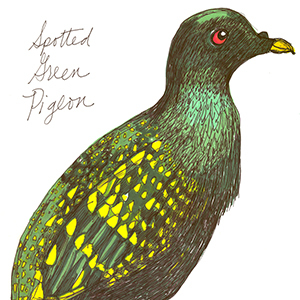
Spotted Green Pigeon
The Spotted Green Pigeon is one of the rarer of the rare; an extinct species of pigeon that we only know from a handful of historical records and one existing specimen, currently in the World Museum Liverpool. Scientists think it was collected in French Polynesia sometime in the late eighteenth or early nineteenth centuries. …
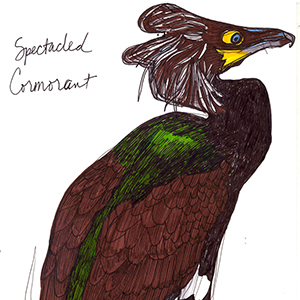
Spectacled Cormorant
Cormorants are medium to large generally attractive seabirds. The Spectacled variety was native to the Commander islands in the far northeast of Russia, in the Bering Sea. It was the largest species of cormorant known to have existed. The one person who described it called it “large, stupid, clumsy and almost flightless”. The area in which it lived was named in the eighteenth…
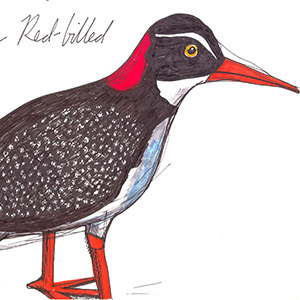
Tahitian Red Billed Rail
There are thirty-four different members of the rail family that are listed as extinct. Rails are not strong fliers; these are medium-sized birds with short wings. Those species of rail that still are able to fly are generally easily blown off course, a characteristic that has led them to populate many isolated oceanic islands. In addition, these birds often prefer to run rather than fly.…
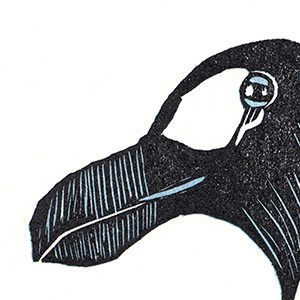
The Great Auk
Alcides is the scientific name for the auks, a family of penguin-like sea birds that are good at swimming and diving, but look rather silly while walking. The Great Auk was the only flightless member of this family, which lived in the waters of the North Atlantic. It bred on cold, rocky, isolated oceanic islands, but only ones with a plentiful food…

Chester Reed
Frank Chapman’s illustrator was also responsible for his own series of pocket sized guides for beginning birders. Two oddly shaped little books appeared in 1905 and 1906, published by Doubleday. They were long and narrow, about the size of a checkbook, each simply titled Bird Guide; one covered waterbirds, game birds, and raptors, and the other covered songbirds of North American from…

